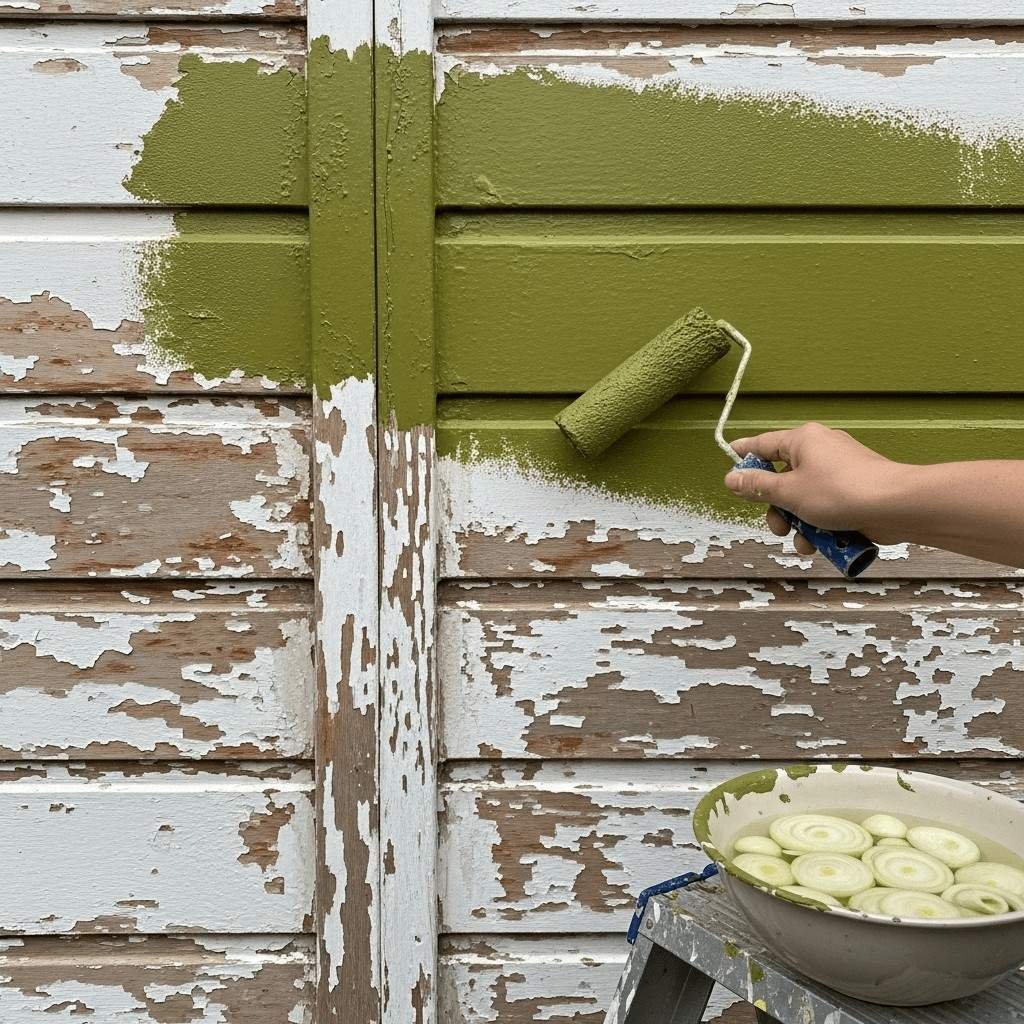How to Get Rid of Paint Smell On Walls
Learning how to get rid of bad paint smell on walls is crucial for maintaining a fresh and pleasant environment. Effective methods include ventilation, using natural deodorisers, and employing professional cleaning strategies.
- What are some quick ways to eliminate paint smell?
- Are there any natural solutions to reduce paint odours?
- How long does paint smell usually last?
- Does using low-VOC paint help with odour control?
- Is the paint smell harmful to health?
- Can scented candles effectively mask paint odours?
- How to get rid of bad paint smell on walls effectively?
- What's a good precaution to avoid paint smells during home renovations?
When you've just painted a room, the last thing you want lingering is a strong, unpleasant odour. In this guide, we'll explore the most effective solutions to the common problem of how to get rid of bad paint smell on walls. Whether you're sensitive to odours or simply want to ensure your newly decorated space is as welcoming as possible, you'll find practical advice to suit your needs.
Understanding the Impact of Paint Smell
Bad paint smell isn't just a nuisance; it can also impact your well-being. Volatile organic compounds (VOCs) are often the culprits behind these potent odours, and prolonged exposure can cause headaches or respiratory issues. Laying down paint can transform a space, yet without addressing these fumes, you might find the joy of a refreshed environment short-lived.
Initial Steps to Manage Odours
Before the paint has dried, there are immediate actions you can take to mitigate the smell. Start by ensuring adequate ventilation. Open windows and doors to allow a natural airflow through the room, helping to disperse the fumes quickly. You might also consider using a fan to expedite this process.
Strategically placing bowls of activated charcoal or baking soda around the room can also absorb odours. These natural deodorisers are readily available and remarkably effective against bad paint smell.
When to Consider Professional Assistance
If the smell persists despite your best efforts, it might be time to consult professionals like Reuben Ellis Decorating in Christchurch, New Zealand. Professionals not only have access to industry-grade solutions but also offer tailored strategies that mitigate odours efficiently, ensuring your freshly painted walls breathe freshness.
Section 2: Natural Remedies and Techniques
When it comes to improving air quality and removing unpleasant odours in your home, especially after repainting, natural remedies are an effective choice. These methods not only help in preserving the aesthetics of your freshly painted walls but also ensure that your living environment remains healthy and free from chemical residues. From using everyday household items to botanical options, let's explore how you can effectively manage paint smells without relying on synthetic products.
Lemon and Baking Soda Fresheners
One of the most popular natural remedies for tackling the issue of how to get rid of bad paint smell on walls is using lemon and baking soda fresheners. Lemons, known for their fresh scent and mild acidity, can help neutralise odours, while baking soda is famous for absorbing unpleasant smells effectively. To create this natural freshener, simply cut a few lemons in half and place them in bowls around the painted area. Pair these with small dishes of baking soda located strategically throughout the room. This combination not only masks the paint fumes but also actively works to reduce them.
Charcoal as an Odour Absorber
Activated charcoal is another powerful ally in your quest for eliminating paint odours. Often used in air purifiers, charcoal has the remarkable ability to absorb odours and alleloviate indoor air pollution. Reuben Ellis Decorating recommends placing bowls of activated charcoal around the room to filter the air naturally. Leave these bowls overnight, or even for several days, to effectively capture and neutralise lingering odours. Not only does charcoal help clean the air, it also prevents the harmful effects of volatile organic compounds (VOCs), which are commonly found in paint fumes.
Ventilation and Air Circulation
Incorporating proper ventilation and air circulation provides a fundamental, albeit sometimes overlooked, step in maintaining air quality in a freshly painted room. By ensuring windows are open and fans are used to forcibly circulate air, odours can be dispersed more quickly. In Christchurch, New Zealand, where fresh air is abundant, taking advantage of the outdoors can work wonders in dissipating paint smells. The natural airflow helps refresh the indoor atmosphere, effectively moving odorous gases out and drawing fresh air in. It’s a simple yet highly practical approach to keeping your environment pleasant and healthy.
By applying these methods, not only can you effectively tackle the issue of paint odours, but you also contribute to a greener, more environmentally-friendly approach to home maintenance. As we explore further solutions, the next section will delve into practical ways to speed up the dissipation of these odours, ensuring your spaces are quickly returned to a neutral, clean state.
Practical Solutions for Quick Odour Dissipation
While natural remedies are effective, sometimes immediate action is required to quickly dissipate paint odours, especially in spaces where ventilation can't always be maximized. In this section, we delve into practical solutions and advanced techniques to help you manage and neutralise paint smells efficiently.
Effective Ventilation Strategies
Effective ventilation is a critical strategy in combating paint odours. Without adequate air circulation, fumes can linger, affecting indoor air quality. If natural ventilation through windows isn't sufficient, consider investing in tower fans or air purifiers equipped with HEPA filters, which can trap volatile organic compounds (VOCs) and improve air exchange rates. Arrange fans strategically to create cross-ventilation, directing fresh air in and forcing stale air out. This method accelerates odour dissipation by ensuring a constant and effective flow of air.
Activated Charcoal and Its Benefits
Activated charcoal is another powerful tool in combatting lingering paint smells. Known for its highly porous nature, activated charcoal is effective in adsorbing odoriferous compounds. Simply placing bowls of this substance around your freshly painted room can significantly reduce unwanted odours. As it doesn't emit any odours itself, it allows for a cleaner environment without introducing additional fragrances, which may be necessary in scent-sensitive settings.
Utilising Commercial Odour Eliminators
For those seeking a quick fix, commercial odour eliminators are an excellent resource. These products often come in spray form and are specifically designed to neutralise odours on a chemical level. Products high in enzymes or made to target VOCs can effectively break down the compounds that cause persistent paint smells. Applying these to surfaces or spraying them in the air can significantly decrease the intensity of paint odours. When using such products, always follow the manufacturer's instructions to ensure safety and efficacy.
When to Consider Professional Help
In some cases, particularly with large painting projects, paint odours may persist despite taking measures on your own. This is where professional help may be necessary. Consulting with experts can provide tailored solutions designed for your specific situation, employing industry-grade tools and techniques. As specialists in the field, companies like Reuben Ellis Decorating in Christchurch, New Zealand, bring both expertise and the right equipment to ensure your space is odour-free in the most efficient manner possible.
By exploring and implementing these practical solutions, you can reduce the unpleasant impact of paint odours, ensuring a more comfortable and breathable living or working environment. Transitioning from simple methods to advanced techniques, the right approach can make a significant difference.
Why Choose Reuben Ellis Decorating for Managing Paint Odours
When it comes to managing paint odours effectively and efficiently, experience and local expertise are invaluable. Based in Christchurch, New Zealand, Reuben Ellis Decorating is rooted in the local community, understanding the unique climatic challenges and preferences of new Zealanders. This understanding allows us to tailor our services specifically for optimal results, ensuring your home remains a fragrant haven.
Experienced Local Experts
With years of experience in the painting industry, What Sets Us Apart What truly makes Reuben Ellis Decorating exceptional is our commitment to quality and client satisfaction. Every project is carefully managed from start to finish, with an emphasis on reliability and professionalism. Our customers consistently praise our attention to detail and the thoroughness with which we eliminate odours, cementing our reputation as a trusted partner in painting services. Engage with a painter in Christchurch who prioritises your comfort and well-being. If you're looking to rid your walls of unpleasant paint smells, Reuben Ellis Decorating offers not just a service, but peace of mind. Let us handle the complexities while you enjoy the simple pleasure of a freshly painted, odour-free space.
In Section 5, we'll address some frequently asked questions about how to get rid of bad paint smell on walls, with clear answers to provide you with additional clarity and confidence for your painting projects.
Frequently Asked Questions
What are some quick ways to eliminate paint smell?
Opening windows to improve ventilation or using fans can rapidly dissipate paint fumes. Additionally, placing bowls of baking soda or activated charcoal around the room can help absorb odours more quickly.
Are there any natural solutions to reduce paint odours?
Yes, several natural solutions exist to combat paint smells, such as using white vinegar, which absorbs odours, or placing citrus peels around the room to neutralise the smell.
How long does paint smell usually last?
The duration of paint smell can vary based on factors like ventilation, room size, and paint type. Generally, it may last from a few days to a week.
Does using low-VOC paint help with odour control?
Yes, low-VOC paints emit fewer volatile organic compounds, reducing the overall strength and duration of paint odours.
Is the paint smell harmful to health?
Prolonged exposure to strong paint fumes can cause headaches or dizziness. It's wise to ventilate well and take breaks from freshly painted areas.
Can scented candles effectively mask paint odours?
Scented candles can help mask paint odours temporarily but don't eliminate the smell. It's often better to use an odour absorber for long-term results.
How to get rid of bad paint smell on walls effectively?
To effectively rid your home of bad paint smell, use a combination of good ventilation, absorbents like activated charcoal, and professional-grade odour eliminators.
What's a good precaution to avoid paint smells during home renovations?
Choose paints with low or zero VOC content for your project, and ensure proper ventilation throughout the painting process to minimise odours.


